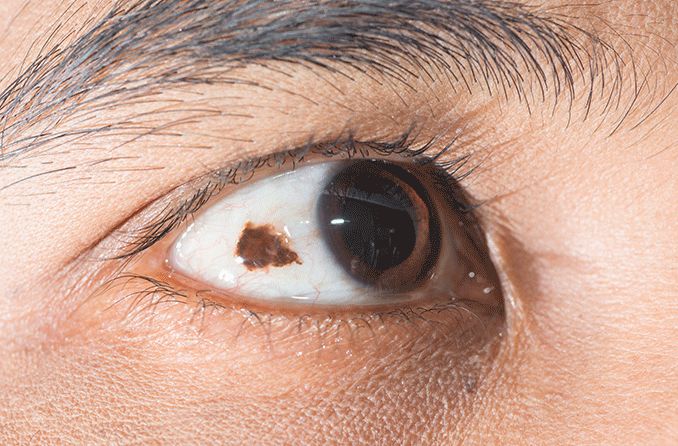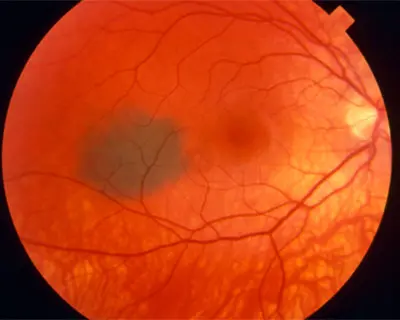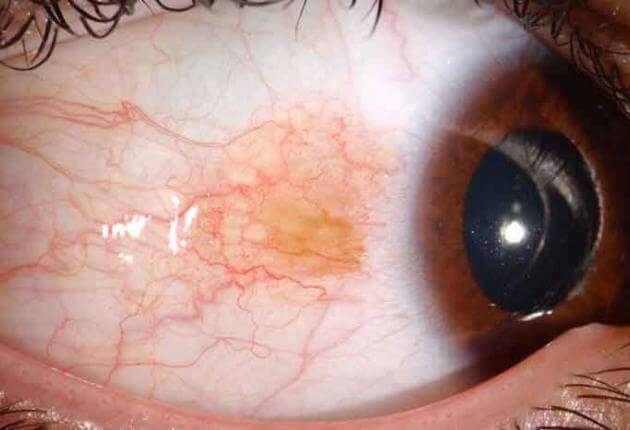Nevus
Welcome to Bright Vision Care Hospital, your dedicated partner in eye health and visual well-being. In this comprehensive guide, we will explore a common eye condition known as "Nevus" or ocular nevus. Our mission is to provide you with valuable information about nevi in the eye, including its symptoms, effective do's and don'ts for management, recommended eye exercises for comfort, and expert care to ensure the health of your eyes.
Understanding nevi in the eye is essential for maintaining healthy eyes and detecting any potential changes early.

Symptoms
Ocular nevi often do not cause any noticeable symptoms and are incidentally discovered during routine eye examinations.
Pigmented SpotThe primary symptom is the presence of a pigmented spot or freckle on the white part of the eye (sclera) or on the iris (colored part of the eye).
Stable SizeNevus lesions typically remain stable in size and do not cause discomfort or changes in vision.
Rarely Affects VisionIn most cases, nevi do not affect vision. However, if they grow excessively or change in shape, they may require further evaluation.
Low RiskNevi in the eye are generally considered low risk for developing into cancer (melanoma), but regular monitoring is crucial.

Do's & Dont's
Do's
Regular Eye ExaminationsSchedule routine eye examinations to monitor the size and appearance of the nevus and ensure it remains stable.
Protect Your EyesWear sunglasses with UV protection when outdoors to protect your eyes from harmful UV rays, which can affect nevi.
Maintain General Eye HealthFollow a healthy lifestyle with a balanced diet and regular exercise to support overall eye health.
Seek Professional EvaluationIf you notice any changes in the appearance of the nevus, such as growth or shape change, seek professional evaluation promptly.
Monitor for Systemic SymptomsWhile ocular nevi are generally benign, be vigilant for any systemic symptoms that may indicate a more significant health issue.
Dont's
Don't Self-DiagnoseAvoid attempting to self-diagnose or treat nevi in the eye. Professional evaluation is essential.
Avoid Eye IrritationBe cautious not to irritate the eye with excessive rubbing or scratching, which could affect the nevus.
Don't Skip Eye ExamsContinue to attend regular eye examinations, even if the nevus remains stable, to monitor its status.
Don't Delay EvaluationIf you notice any concerning changes in the nevus or experience eye discomfort, do not delay seeking professional evaluation.
Limit Sun ExposureMinimize direct sun exposure to your eyes, especially during peak sunlight hours, to protect the nevus from potential UV damage.
Exercises
While there are no specific exercises for nevi in the eye, maintaining overall eye health is essential. Consider these practices:
Discuss with your healthcare provider the use of supplements that support eye health, such as those containing antioxidants like vitamin C and E.
Eye RestEnsure you get adequate sleep and take breaks during extended periods of screen time to reduce eye strain.
Eye HygieneMaintain good eye hygiene by keeping your eyelids clean and free from debris.
Stay ActiveRegular physical activity supports overall health and can contribute to eye health.
Mental Health SupportSeek mental health support to cope with any stress or anxiety related to your eye health.

Summary
Ocular nevi are generally benign pigmented spots in the eye that require regular monitoring. At Bright Vision Care Hospital, we are committed to providing expert care and guidance to ensure the health of your eyes and address any concerns related to nevi.